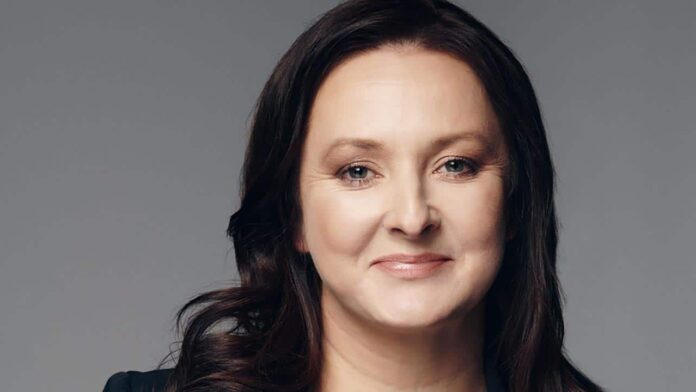Metaverse is a technology that provokes extreme reactions. On the one hand, we observe a dynamically developing virtual environment, on the other, we see a decline in interest in this trend among certain sectors. Some trivialize the Metaverse, while others see it as a great opportunity. The most modern banks perceive this potential and do not lag behind, engaging in projects embedded in this space. Meanwhile, despite growing business interest, only 11% of Polish consumers know the meaning of the term Metaverse, and only one-third have heard of it at all. Mastercard has researched this virtual world and consumer attitudes towards what happens in this space, creating a report called “Poland Meets Metaverse.”
What is Metaverse?
The authors of the “Poland Meets Metaverse” report rely on the definition of the Metaverse as a 3D internet, which was described by Neal Stephenson, the creator of the term, as a virtual space where users not only browse content but become an integral part of it. They emphasize that understanding the internet paves the way for other forms of communication using technologies such as augmented reality (AR), mixed reality (MR) and virtual reality (VR). Business opportunities related to the Metaverse are just beginning to form but their potential seems huge. The only limiting factors are today’s technological and infrastructural capabilities.
Technologies supporting the development of the Metaverse
The development of AR, MR and VR technology plays a significant role in popularizing the Metaverse. As the report’s authors point out, technology innovations, including modern goggles, appear to be a milestone in the development of mixed reality. The combination of VR and AR experiences may be key in accelerating the development of these technologies. Imagination and interaction possibilities in the virtual world open completely new perspectives for commerce, communication, entertainment, or education. The Metaverse can contribute to revolutionizing the way people interact with technology, opening new horizons for the development of a digital society.
“Utilizing the full potential of the Metaverse requires an evolution that proceeds as the technology matures, new regulations emerge and consumer behaviors change. At Mastercard, we support the development of new technologies and the introduction of innovations. That’s why we decided to explore the potential of this emerging phenomenon, the Metaverse. We see its immense possibilities, including the area of virtual commerce, and we want to make sure it develops in an inclusive, safe, and trouble-free way. Our report is not only a comprehensive compendium of knowledge but also practically indicates possible development directions in virtual space for banks, e-commerce and other industries,” said Marta Życińska, General Director of the Polish division of Mastercard Europe.
Poles and the Metaverse
The report also analyzed the results of a survey conducted by research house Minds&Roses. Its results indicate that despite the lack of theoretical knowledge about the Metaverse, about one-third of internet users participating in the survey declare that they have already used virtual reality. For 56% of respondents, the popularity of selected virtual worlds is associated with the possibility of escaping from everyday life and relaxing. This percentage increases to 66% among respondents who are active gamers. However, as the authors of the “Poland meets Metaverse” report indicate, for the Metaverse to become commonplace for Polish consumers, several challenges must be faced.
One of them is the current average internet speed, which needs to be faster for users to move smoothly and without obstruction in the digital world. The development of virtual reality also has definite physical limitations. Respondents indicated problems with the vestibular system, taking off goggles after several minutes of interaction with VR. Spontaneously, they also noticed that in small apartments, or in limited space, it may be difficult to provide the freedom of movement required in some Metaverse applications, such as ones related to physical activity.
Although respondents perceive barriers, it is worth noting that they are also interested in this technology. As many as 60% of respondents are enthusiastic about interacting with brands in the Metaverse – their involvement, however, will depend on how “touchpoints” with the customer are designed. For example, respondents see enormous potential in virtual spaces created by brands that allow testing experiences before using their offer, such as the possibility of testing a virtual airplane cabin before buying tickets.
Banking in the Metaverse
As the report’s authors emphasize, the Metaverse, although it is a relatively new concept, has already found application in over 30 industries, including banking – both in financial institutions abroad and in Poland. As far as banking in the Metaverse is concerned, Poles would most likely use it for savings and investment advice (64%), learn about the bank’s offer (65%) and submit a complaint (58%). Respondents rated the opportunity for financial education in virtual space highly, both for children and adults. The report also reveals that about 10% of bank customers would be ready to use the Metaverse as their main service channel.
About the report
The report “Poland meets Metaverse” developed by Mastercard Advisors contains information about the Metaverse itself, its connections with technologies such as augmented reality (AR), virtual reality (VR), blockchain technology and unique digital tokens (NFTs). Additionally, various types of virtual worlds and specific examples of solutions that are popular among Polish consumers are presented. The report discusses potential applications of the Metaverse in the financial sector and others, such as commerce or entertainment. The Mastercard experts also pointed out potential strategies and reactions to upcoming changes in the report. The report provides information that can help entities from the financial sector better understand the potential of the Metaverse and develop appropriate strategies. It is a valuable source of knowledge for those interested in exploring and using the potential of this virtual space.

















